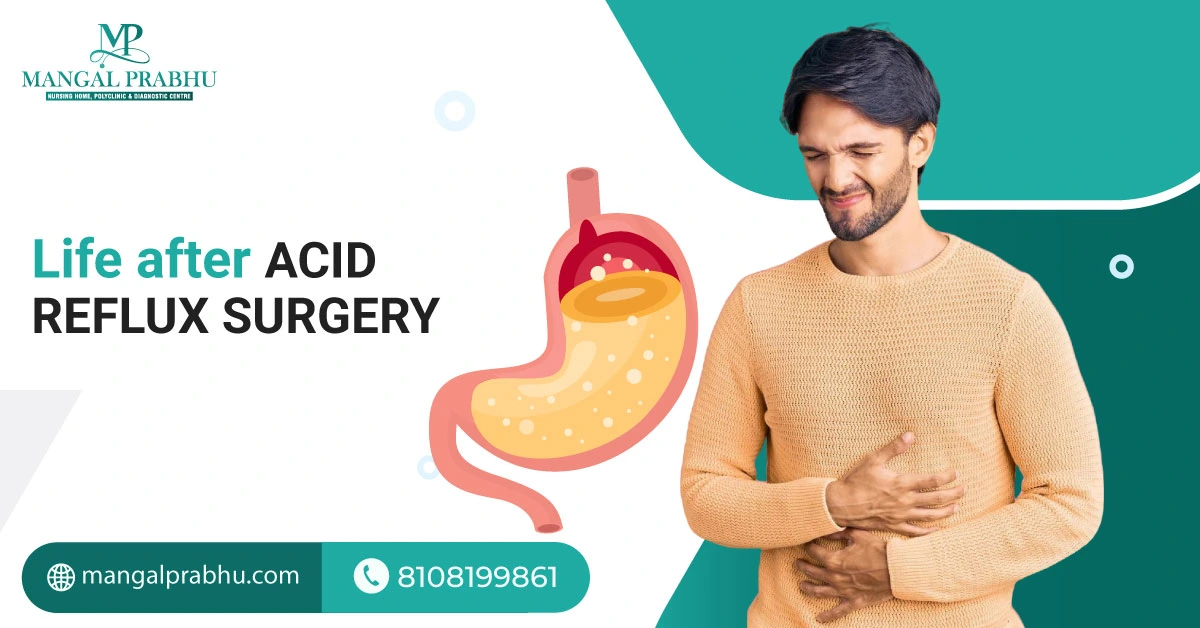
Life with chronic heartburn, a burning sensation in the throat and stomach, and other symptoms of gastroesophageal reflux disease (GERD) can be challenging. In some cases, the symptoms are so severe that they interfere with your daily life. If you have tried all non-invasive procedures, like dietary adjustments and medication, but see no relief, it’s time to discuss acid reflux surgery in Navi Mumbai with a specialist.
Preparing for Surgery
The two most common surgical procedures for GERD are Fundoplication (creating a sphincter muscle at the lower end of the esophagus to prevent the stomach content from going back up) and LINX (using magnetic beads to tighten the sphincter).
Your surgeon will order tests like endoscopy and manometry to identify the severity of the GERD and determine the best surgical procedure. On the days leading up to the surgery, you may be put on a liquid and soft diet to avoid pressure on your digestive system.
The Recovery Process
The recovery period can vary depending on the patient’s health and the type of surgery. If the surgery is laparoscopic, you can expect faster healing and shorter hospital stays. Still, 1-3 days in the hospital are necessary, as your doctor will closely monitor your vitals and evaluate your ability to eat, drink, and digest before giving a discharge.
Pain and mild discomfort after surgery are common. Your doctor will prescribe medication to relieve pain at the incision site. You can expect to return to normal activities within 4-6 weeks. Avoid heavy lifting or strenuous exercises until your doctor clears you for it.
Dietary Adjustments
Your doctor will give detailed instructions on what to eat and avoid. Generally, it’s advisable to start with a liquid diet, preferably food that’s easy on your digestive health, and gradually transition to your regular diet. During recovery, your doctor will advise you against carbonated beverages and acidic food.
Here’s what can help speed up your healing:
- Eat smaller, more frequent meals
- Stick to the liquid, like fruit and vegetable juices, in the first few weeks
- Chew properly and eat slowly
- Slowly transition to solid food, but avoid acidic, raw, undercooked, and too-hard-to-digest food.
- Keep yourself hydrated
Long-term Lifestyle Changes
Acid reflux surgery has a positive prognosis. There’s a good chance you will find significant relief from the GERD symptoms after surgery. Although you may be on certain dietary restrictions, most people can eat like usual and have their favorite foods in moderation a few weeks post-surgery.
Some weight loss after GERD surgery is normal since you’ll be on a liquid diet. The best part is that heartburn, stomachache, the risk of ulcers from frequent episodes of acid reflux, and other symptoms will ease a lot, making your life a lot better. Light exercises, like walking and swimming, are highly advisable, as they help improve digestion post-surgery. Watch out for signs of complications, like fever, bleeding from the incision, and difficulty swallowing after surgery. Keep in touch with your general surgeon in Navi Mumbai, and stay positive.
